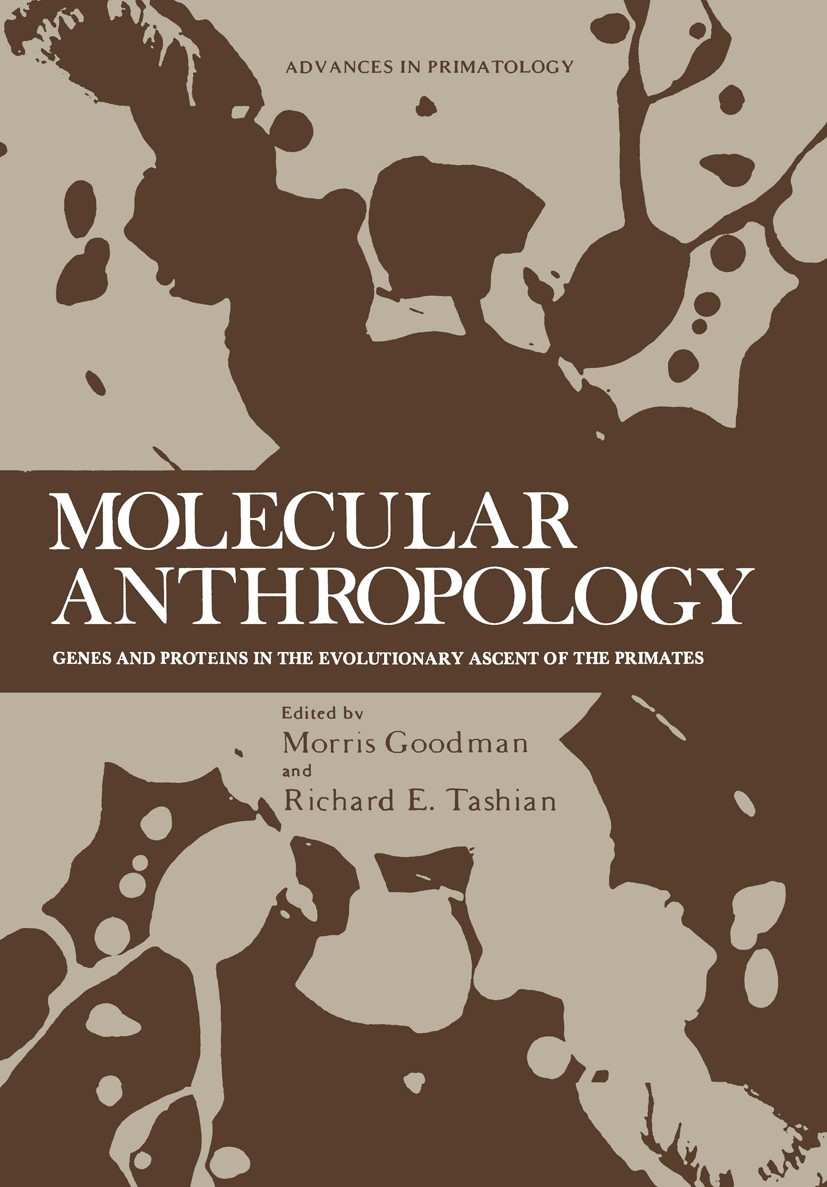| 書目名稱 | Molecular Anthropology | | 副標題 | Genes and Proteins i | | 編輯 | Morris Goodman,Richard E. Tashian,Jeanne H. Tashia | | 視頻video | http://file.papertrans.cn/638/637983/637983.mp4 | | 叢書名稱 | Advances in Primatology | | 圖書封面 |  | | 描述 | In 1962 at the Burg Wartenstein Symposium on "Classification and Human Evolution," Emile Zuckerkandl used the term "molecular anthropology" to characterize the study of primate phylogeny and human evolution through the genetic information contained in proteins and polynucleotides. Since that time, our knowledge of molecular evolution in primates and other organisms has grown considerably. The present volume examines this knowledge especially as it relates to the phyletic position of Homo sapiens in the order Primates and to the trends which shaped the direction of human evolution. Participants from the disciplines of protein and nucleotide chemistry, genetics, statistics, paleon- tology, and physical anthropology held cross-disciplinary discussions and argued some of the major issues of molecular anthropology and the data upon which these arguments rest. Chief among these were the molecular clock controversy in hominoid evolution; the molecular evidence on phylogenetic relationships among primates; the evolution of gene expression regulation in primates; the relationship of fossil and molecular data in the Anthropoidea and other pri- mates; the interpretation of the adaptive signif | | 出版日期 | Book 1976 | | 關鍵詞 | anthropology; evolution; human evolution; molecular evolution; phylogeny; primates | | 版次 | 1 | | doi | https://doi.org/10.1007/978-1-4615-8783-5 | | isbn_softcover | 978-1-4615-8785-9 | | isbn_ebook | 978-1-4615-8783-5 | | copyright | Springer Science+Business Media, LLC, part of Springer Nature 1976 |
The information of publication is updating

|
|
 |Archiver|手機版|小黑屋|
派博傳思國際
( 京公網(wǎng)安備110108008328)
GMT+8, 2025-10-24 02:08
|Archiver|手機版|小黑屋|
派博傳思國際
( 京公網(wǎng)安備110108008328)
GMT+8, 2025-10-24 02:08


